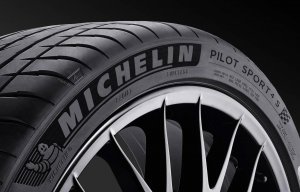
Carbios enters r-PET filament market for tyres
Consortium members aim to create new products with the r-PET fibres produced by the enzyme-based recycling process.

20th February 2023
Innovation in Textiles
|
Clermont-Ferrand, France
PVH Corp., the owner of brands including Calvin Klein and Tommy Hifiger, has joined the fibre-to-fibre consortium formed by Carbios to test and enhance its newly developed biological recycling technology, with the aim of providing closed circularity on an industrial scale.
The brands On, Patagonia, Puma and Salomon are already committed to the two-year project to deliver the biological recycling of polyester fabrics, including the establishment of thorough sorting and dismantling technologies for complex textile waste.
The Carbios technology is based on highly selective enzymes that can recycle blended feedstocks, reducing the extensive sorting required by current thermo-mechanical recycling methods. For mixed fibre textile materials, a patented enzyme acts solely on the PET polyester found within the material to create recycled PET (r-PET) that is equivalent in quality to virgin PET.
Globally, only 13% of textile waste is currently recycled and mainly for lower quality applications such as padding, insulation or rags. The remaining 87% is destined for landfill or incineration. In order to work on improving textile recycling technologies, consortium members will supply feedstock in the form of apparel, underwear, footwear and sportswear.
A new line for textile PET waste will become operational at the demonstration facility of Carbios as part of the project which is co-funded by the European Union. This comes in anticipation of future regulations, such as the separate collection of textile waste to be made mandatory in Europe from January 1st 2025.
To produce fibres and fabrics, today’s textile industry largely relies on non-renewable resources, and in part on recycled PET bottles for recycled polyester fibre. This resource, however, will become scarce as PET bottles are increasingly used to produce new bottles. In a circular economy, the materials used to produce textiles will be sourced from recycled or renewable feedstocks produced through regenerative practices. As well as supplying feedstock for the demonstrator, consortium members aim to create new products with the r-PET fibres produced using the Carbios process.

Business intelligence for the fibre, textiles and apparel industries: technologies, innovations, markets, investments, trade policy, sourcing, strategy...
Find out more